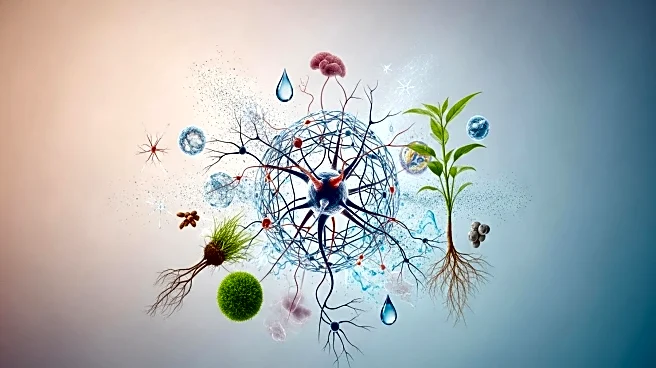What is the story about?
What's Happening?
A recent study published in Neuropsychopharmacology examines the role of the exposome in influencing neuroplasticity in the developing adolescent brain. The exposome encompasses all environmental exposures an individual experiences throughout their life, and this research highlights how these exposures can significantly impact brain development during adolescence. The study suggests that as adolescents are exposed to a broader range of environmental inputs, these factors can either enhance or hinder neuroplasticity, affecting cognitive, emotional, and material development. The research emphasizes the need for interdisciplinary approaches to understand how various internal, external, and contextual factors of the exposome influence neuroplasticity mechanisms.
Why It's Important?
Understanding the exposome's impact on adolescent brain development is crucial for enhancing mental health and cognitive outcomes. Adolescence is a critical period for brain development, and environmental factors can have lasting effects on neuroplasticity. This research could inform public health strategies and educational policies aimed at optimizing environmental conditions to support healthy brain development. By identifying factors that positively or negatively influence neuroplasticity, interventions can be designed to mitigate risks and promote resilience in adolescents. The study also highlights the potential for using advanced imaging and multiomic data to gain deeper insights into brain development processes.
What's Next?
Future research will likely focus on identifying specific environmental factors that most significantly impact neuroplasticity during adolescence. This could involve longitudinal studies using advanced imaging techniques and genetic analyses to track brain development over time. Additionally, there may be efforts to develop interventions or educational programs that address harmful environmental exposures and promote positive influences on adolescent brain health. Collaboration across disciplines, including neuroscience, psychology, and public health, will be essential to advancing this field of study.

















